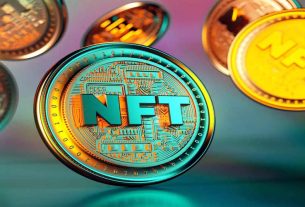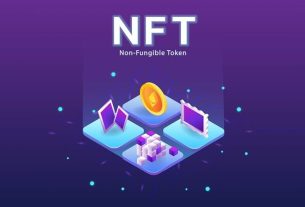Non-Fungible Tokens (NFTs) have been gaining popularity in recent years as a new way of creating, selling, and trading digital assets. While NFTs have been used primarily in the art world, they have the potential to transform other industries as well, including real estate. In this article, we will explore the legal considerations of using NFTs in real estate transactions, including their benefits, challenges, and potential legal issues.
Introduction
In this section, we will provide an overview of NFTs and real estate transactions, and how they are related. We will also discuss the potential benefits of using NFTs in the context of real estate transactions.
What are NFTs?
NFTs, or Non-Fungible Tokens, are unique digital assets that use blockchain technology to verify ownership and authenticity. NFTs can represent anything from artwork to virtual real estate, providing a secure and transparent way to buy, sell, and trade digital assets.
What are Real Estate Transactions?
Real estate transactions involve the buying, selling, or leasing of property, including land, buildings, and other structures. Real estate transactions can be complex and involve a range of legal and regulatory issues.
NFTs in Real Estate Transactions: Potential Benefits
NFTs can provide a new way to buy, sell, and trade real estate by enabling the creation of unique and scarce digital assets. NFTs can also provide a new form of digital ownership and value creation, enabling investors to participate in the success of a property or real estate project.
Applications of NFTs in Real Estate Transactions
In this section, we will explore some of the potential applications of NFTs in the context of real estate transactions. We will discuss how NFTs can be used to create unique and valuable digital assets, enable new forms of ownership and value creation, and support the growth of the real estate industry.
Unique and Valuable Digital Assets
NFTs can enable the creation of unique and valuable digital assets in the context of real estate transactions. For example, a real estate developer could create an NFT that represents ownership in a new development project, providing investors with exclusive ownership and control over the asset. This can create a sense of rarity and uniqueness, driving demand and increasing the value of the asset.
New Forms of Ownership and Value Creation
NFTs can also enable new forms of ownership and value creation in the context of real estate transactions. For example, an NFT could represent a fractional ownership stake in a property, enabling multiple investors to participate in the success of the property in a more direct way. This can create a sense of ownership and commitment among investors, driving engagement and participation.
Supporting the Growth of the Real Estate Industry
NFTs can also support the growth of the real estate industry by providing a new way to buy, sell, and trade real estate. By using NFTs, real estate developers and investors can create unique and valuable digital assets that can be used to attract investment and support the growth of the industry.
Legal Considerations
While the potential applications of NFTs in real estate transactions are vast, there are also legal considerations to consider. In this section, we will discuss some of the potential legal issues and challenges that may arise.
Property Law
One of the main legal issues to consider when using NFTs in real estate transactions is property law. NFTs may be viewed as a form of digital property, and there may be legal questions around the ownership and transfer of these digital assets. It is important for buyers, sellers, and developers to understand the legal implications of using NFTs in real estate transactions.
Securities Law
Another legal issue to consider when using NFTs in real estate transactions is securities law. If an NFT represents a fractional ownership stake in a property or real estate project, it may be viewed as a security under U.S. law. This can create regulatory issues and may require compliance with securities laws, such as registration and disclosure requirements.
Tax Implications
Using NFTs in real estate transactions can also have tax implications. The ownership and transfer of digital assets can be complex, and there may be tax implications for buyers, sellers, and developers. It is important to consult with a tax professional to understand the tax implications of using NFTs in real estate transactions.
Contract Law
Contract law is also an important consideration when using NFTs in real estate transactions. Contracts must be carefully drafted to ensure that the terms of the transaction are clear and enforceable. Contracts should also address issues such as ownership, transferability, and dispute resolution.
Case Studies: NFTs and Real Estate
In this section, we will examine some case studies of NFTs and real estate in action.
The St. Regis Aspen Resort
The St. Regis Aspen Resort in Colorado became the first real estate property to be sold as an NFT in 2018. The NFT represented a fractional ownership stake in the resort, allowing buyers to participate in the revenue generated by the property.
The XYO Network
The XYO Network, a blockchain-based location data platform, has developed an NFT-based system for buying and selling real estate data. The platform enables users to buy and sell NFTs that represent location data, creating a new form of ownership and value creation in the real estate industry.
Decentraland
Decentraland is a virtual world that uses NFTs to enable the buying and selling of virtual real estate. Users can buy, sell, and trade NFTs that represent virtual land and buildings, creating a new form of ownership and value creation in the digital realm.
Conclusion
In conclusion, NFTs have the potential to transform real estate transactions by enabling the creation of unique and valuable digital assets, new forms of ownership and value creation, and support for the growth of the industry. However, there are also legal considerations and challenges to consider, such as property law, securities law, tax implications, and contract law. As NFTs and blockchain technology continue to evolve, it is important to address these issues and work towards creating a more sustainable and inclusive digital ecosystem.
I’m a best-selling author and leading authority in the world of cryptocurrency. I have been involved in the crypto community since 2012 and have helped numerous startups and organizations on blockchain strategy. I am a regular contributor to Forbes and CoinDesk, and my work has been featured in The Wall Street Journal, Bloomberg, Reuters, and other major media outlets. In addition to writing for publications, I am also a sought-after speaker on cryptocurrency and blockchain technology niches respectively.




